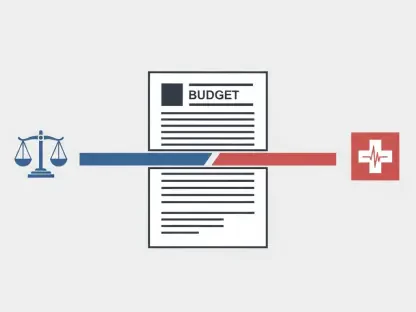Nebraska’s journey toward implementing medical cannabis laws reflects the complexity of turning voter approval into effective regulation amidst legislative challenges. With overwhelming support for cannabis legalization measures in the recent past, the state must now grapple with the intricacies of aligning public mandates with practical policies. As lawmakers delve into crafting a framework that balances voter intentions with legislative realities, significant attention is given to the details and implications of this cannabis legalization effort.
Legislative Bill 677
Regulatory Challenges
At the heart of Nebraska’s efforts to regulate medical cannabis is Legislative Bill 677, designed to establish a solid framework for cannabis usage in the state. This bill serves as a significant legislative attempt to provide structure and regulatory oversight, laying the groundwork necessary for functional cannabis laws. Lawmakers tasked with this responsibility face multiple challenges, including addressing funding requirements, legal opposition, and infrastructure development necessary to operationalize the law effectively. Among the key concerns are the financial provisions surrounding the establishment of the Nebraska Medical Cannabis Commission, envisioned to manage cannabis regulation but hindered by budgetary constraints. Overcoming these obstacles is crucial for the effective implementation of the cannabis framework, making the role of LB 677 indispensable in navigating the complex terrain of medical cannabis regulation.
Funding and Infrastructure
One of the predominant challenges affecting LB 677 is securing financial support for the Nebraska Medical Cannabis Commission meant to oversee cannabis laws within the state. Despite the initiation of the commission’s formation, insufficient funding has stalled its development, presenting a significant obstacle to its intended regulatory function. Various strategies are being explored to resolve these funding issues, such as potentially sharing resources with the Nebraska Liquor Control Commission or leveraging support through LB 677 provisions. These approaches reflect the need for robust infrastructure to advance cannabis regulation meaningfully. The focus remains on establishing a viable financial path to bolster the commission’s operations, essential for the comprehensive governance of cannabis usage statewide. Successfully navigating these fiscal challenges is vital to achieving the broader goals of responsible and efficient medical cannabis law implementation in Nebraska.
Legal Opposition
Attorney General Stance
Nebraska Attorney General Mike Hilgers has been vocal in opposing the implementation of medical cannabis legislation, citing potential conflicts with federal law and concerns over the authenticity of petition signatures that facilitated the ballot measure. His objections introduce an additional layer of complexity to the legislative proceedings that seek to honor the will of voters while adhering to legal standards. This opposition is particularly significant as it highlights the ongoing tension between state and federal jurisdictions concerning cannabis regulation. Lawmakers must navigate this resistance carefully, ensuring that legislation respects both voter intent and federally mandated legal constraints. These challenges underscore the broader issues faced in enacting cannabis legalization measures in a legally secure and publicly responsive manner.
Navigating Federal and State Laws
The interplay between federal regulations and state cannabis laws presents an intricate challenge for Nebraska’s lawmakers. As they work to integrate voter-approved cannabis measures into state legislation, they must do so with an acute awareness of federal statutes governing cannabis use. Striking this balance is essential in crafting legislation that complies with overarching legal frameworks while duly reflecting voter desires. This balancing act is necessary to preclude potential legal confrontations that could arise from discrepancies between state actions and federal mandates. Adequate foresight and deliberation are required to ensure state laws remain in harmony with federal policies, maintaining legal coherence and respecting voter-approved cannabis usage guidelines. The challenge lies in finessing this legal interplay to avoid pitfalls that could hinder the successful implementation of cannabis laws in Nebraska.
Ensuring Responsible Regulation
Addressing Unregulated Usage
Amidst the legislative landscape shaped by LB 677, concerns arise regarding the possibility of unregulated cannabis usage if regulatory measures are not properly instituted. This apprehension stems from fears that, without comprehensive legislation, the state might witness chaotic or inconsistent cannabis use, leading to broader social and legal ramifications. Consequently, lawmakers are urged to consider elaborate and robust regulatory frameworks to safeguard against such scenarios. These measures aim to provide clarity and depth to cannabis legislation, precluding potential societal or legal challenges. Establishing responsible regulation is imperative to ensure cannabis use within Nebraska remains well-controlled, and prevention of risks associated with unchecked usage becomes a key legislative priority.
Balancing Health and Usage
Legislative Bill 677 aims to implement thoughtful restrictions to balance health concerns with cannabis usage, responding to voter approval. The bill introduces specific limitations related to forms of consumption, qualifying medical conditions, and the imposition of sales taxes on cannabis products. Such regulations are designed to ensure public health safeguards while promoting a controlled yet effective framework for medical cannabis use. By addressing these elements, the legislation attempts to cater to both health advocacy imperatives and the sanctioned medical implications favored by voters. Crafting policies that uphold health standards alongside regulated usage is vital in fostering a responsible and comprehensive approach to cannabis legislation within Nebraska’s legal framework.
Debates and Discussions
Medical Condition Inclusions
Within the discourse surrounding LB 677, debate looms large over the inclusivity of eligible medical conditions like PTSD. This discussion highlights diverging perspectives among lawmakers and various stakeholders, offering a glimpse into the nuanced debate over health advocacy and regulatory decisions. While some view the bill as unduly restrictive, others emphasize the necessity of controls to ensure safe and regulated medical cannabis consumption. These debates reflect broader concerns over adequately aligning legislative measures with health requirements and public consensus. Consensus-building remains integral to achieving a balanced approach that respects diverse opinions within the legislative framework governing medical cannabis use.
Voter Initiatives and Legislative Oversight
Nebraska’s approach to cannabis regulation underscores a fundamental tension between voter-sanctioned initiatives and the necessity for legislative oversight. This dynamic reveals the need for deft legislative refinement post-approval to adequately address regulatory demands while honoring voter intentions. The intricate relationship between voter-directed measures and legislative processes raises significant questions about maintaining democratic integrity while ensuring functional governance. Addressing this concern requires careful calibration of regulatory actions to align with public opinion, fostering a balanced correlation between voter decisions and legislative enactments. As lawmakers navigate these challenges, they must ensure that the interplay between voter approval and legislative refinement effectively harmonizes with broader operational needs.
Aligning Public Opinion and Policy
Advocating Pragmatic Approaches
In response to the challenges of aligning public opinion with cannabis policy in Nebraska, lawmakers—such as State Senator Hansen—advocate pragmatic approaches that honor voter intentions while addressing regulatory necessities. This perspective encourages thoughtful legislative measures that manage potential legal ambiguity and align state actions with federal undertakings. The recognition that careful legislative action is essential to integrating medical cannabis responsibly demonstrates the ongoing effort to strike a balance between differing stakeholder interests and compliance with governing legal frameworks. Pragmatism within these regulations is key to accommodating both public and legal demands, securing a stable and effective path for operationalizing cannabis laws in Nebraska.
Integration into Legal Framework
Nebraska’s pursuit of medical cannabis legalization illustrates the complexity of transforming voter approval into real-world regulation amid legislative hurdles. The state has seen substantial backing for cannabis legalization in recent years, underscoring a shift in public sentiment towards embracing these changes. Now, Nebraska finds itself in the challenging position of converting this overwhelming support into tangible policies. Lawmakers must navigate the delicate process of developing a regulatory framework that respects the wishes of the voters while considering the practical and legal hurdles they face.
This endeavor requires thorough examination of the details and potential ramifications involved in cannabis legalization. Factors such as regulatory oversight, public health concerns, law enforcement, and economic implications add layers of complexity that must be meticulously addressed. While the voter mandate is clear, translating it into effective legislation necessitates a careful balancing act, weighing public desires with legislative outcomes.
Nebraska’s path is not straightforward, but the determination to honor the electorate’s decision remains strong. The effort involves thorough debates and discussions among lawmakers, experts, and the community to create laws that responsibly incorporate medical cannabis into the fabric of Nebraska’s regulations while considering all facets of implementation.









